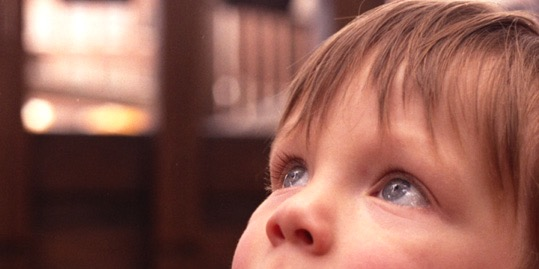
The human spirit, that human spirit that we should first and foremost consider when we think of education, is glorious, enthusiastic; it is luminous, daring, grandiose, and infinitely delicate; melancholy, mirthful, tragic, passionate; earthy and ethereal; inquisitive, contemplative; tender, sorrowful, and joyous. Above all it is robust.
– Renilde Montessori, The Timeless Human Spirit, 1988
When Montessorians talk about protecting the child's spiritual development, we are not talking about issues of religion or theology. In this practice, the spiritual life of the child is the child's nature state: peaceful, collaborative, curious, intrinsically motivated to learn, intrinsically motivated to contribute and, most of all, full of wonder. In a method often praised for its academic strengths, Montessori teachers know that our real work is not mathematics or reading, but the protection of the essence of the child, glorious, enthusiastic, luminous, daring and delicate.
The elegant design of the materials- that supports the child's spirit, giving them the opportunity to engage with materials that interest them and to integrate new information through their own engagement. And the collaboration of multiage classrooms- that supports the child's spirit, too, by letting them play meaningful roles in the lives of their peers, building a sense of themselves as important agents in their society. And the disciplined practice of scientific observation- that supports the child's spirit, too, making sure that the prepared environment is prepared with a particular set of needs in mind, well aligned to the unique development of each child in the classroom.
But the most powerful tool we have in Montessori to protect the child's spirit is the time we make for it to flourish. When the world is divided into fifty-minute segments of Math, Reading, Social Studies and Science, it's hard to find time to see how they all weave together. When children are pressed to finish a certain amount of work before it's time to (line up, go to PE, put their things away, turn in their papers,) success becomes defined by one's time management instead of one's curiosity.
Children need time, to think and make sense of their thinking, to observe new phenomena and integrate those observations into how they understand the world, to wonder without an end-goal, for no other reason than the fact that the world is a pretty wonderful place.
But instead, far too often, we rush children through. We snap at them to hurry up or, worse, we hop in front of their efforts and do ourselves those things we think they're taking too long to do. We teach them to value their schedules instead of their spirits. We complain about how over scheduled, over burdened, over extended we feel, and we perpetuate the same in our children.
If we want to protect our children's spirits, we have to give them the time and the space to flourish, to feel what they feel deeply, authentically, when it's joyous and when it's heartbreaking. We have to let them experience all the ways in which the world calls their wonder, and pay attention to all the things the world asks them to attend to, until they choose to look away, until their spirits are full. If we want to protect our children's spirits, we have to respect that they are different than our own, and measure our pace not by our own lists of things to do, but by the tender and robust contemplation of the child.
Follow the child. No matter how long it takes.
#SpiritualPreparation #Wonder #ForParents #Theory #General
